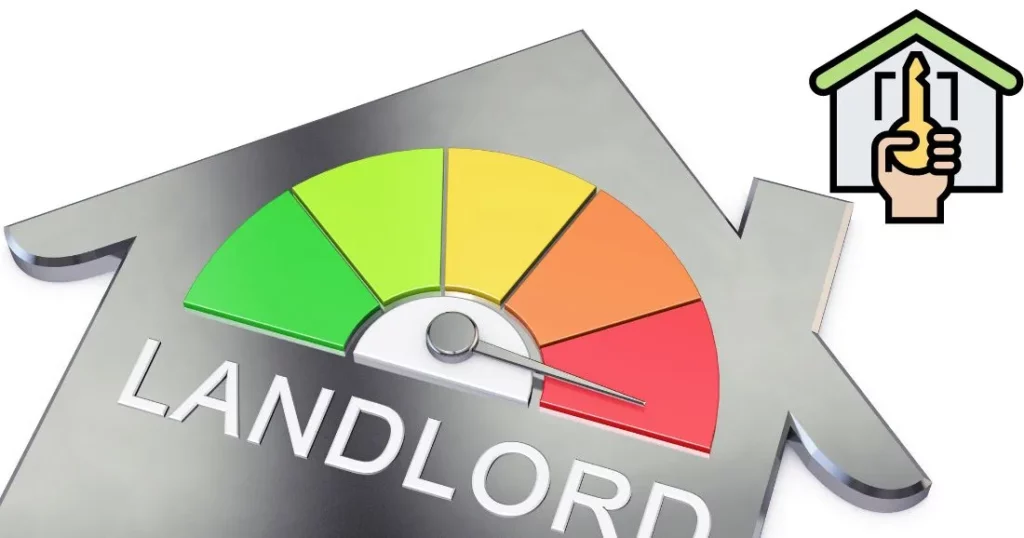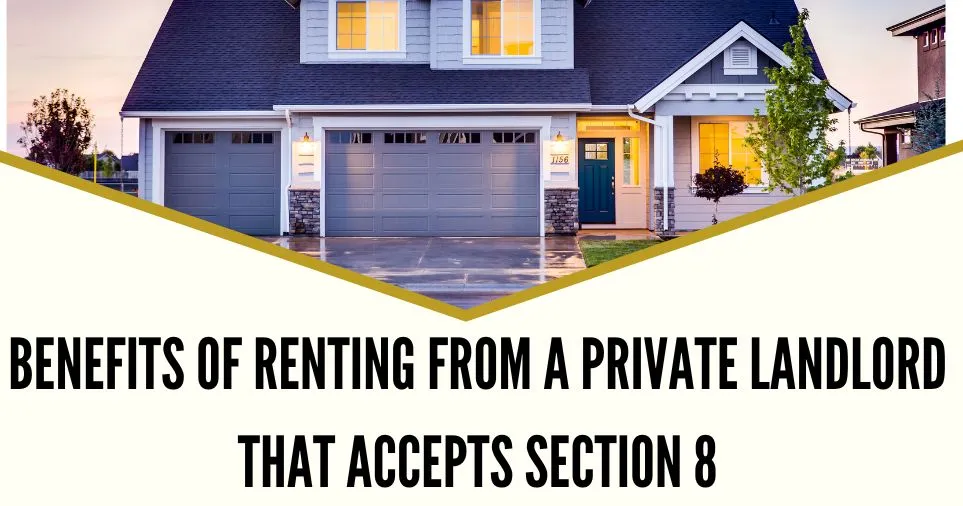How to Search for Private Landlords that Accept Section 8 Near Me
The Section 8 is a government-funded program that provides financial assistance to low income people or families who are struggling to pay their house rent. The program is administered by the department of housing & urban development (HUD) and is available to families who meet certain income and other eligibility requirements.
There are many people who are looking for private landlords that accept section 8. This is because they need a place to live and they do not want to live in public housing. There are many different ways from you can search for such landlords. You can use the internet, newspapers, or even ask around but the way is to find from internet. There are a few things to keep in mind when searching for private landlords that accept section 8.
- The first is to search for areas where you are interested in living.
- You can use websites like Zillow or Trulia to search for rentals in specific areas.
- Another tip is to contact the housing authority in the area you are interested in living.
- They can provide you with a list of landlords that accept section 8.

Read also: How to Become Landlord
Ways to Find Private Landlords that Accept Section 8
There are a number of ways to search for private landlords that accept section 8. The most effective method will vary depending on your individual needs and circumstances. However, some general tips that may be useful include searching online listings, contacting a local housing authority, or searching for Section 8 housing on websites such as HUD.gov.
Finding a private landlord that accepts Section 8 could be a challenge for you, but it is possible. Let us share some tips with you to find a landlord that is willing to participate in the program:
1. Start by searching online:
There are a number of websites that list rental properties that accept Section 8 vouchers personally i like affordablehousing because its give freedom to list properties free so there are hug landlord you can find that are accept section 8. HUD’s website is also good and preferred website by our researchers and its gov official site. When it comes to finding private landlords that accept Section 8, searching online is often the best bet and this can be a great way to find potential options.
Of course, it’s important to remember that not all landlords listed on these websites may be willing to accept Section 8 vouchers. It’s always best to contact the landlord directly to inquire about their policies. Still, searching online is a great way to start your search for a landlord. With a little bit of effort, you should be able to find a great option that meets your needs.
2. Contact Your Local Housing Authority:
Another easiest way to contact your local housing authority can provide you with a list of landlords that participate in the section 8 program. They can also help you with the application process. The housing authority can also help you with other housing-related issues, such as finding a place to live if you are homeless or have been evicted. They can also provide you with information about resources in your community, such as food pantries and shelters. If you need help paying your rent, the housing authority may be able to help you with that too.
If you are interested in applying for the section 8 program, contact your local housing authority. They can help you with the application process and provide you with a list of participating landlords. Once you have a list of potential landlords, the next step is to contact them and set up an appointment to view the property. This is an important step, as you want to make sure that the property is safe and decent before you move in.
3. Ask Around to Your Friends & Community:
Talk to your friends, family, and neighbors to see if they know of any landlords that accept section 8 vouchers. With a little bit of effort, you should be able to find a safe, affordable place to live that accepts your section 8 voucher.
Read Also: How can you Do Section 8 Neighbor Complaint
4. Check With Property Management Companies:
Many property management companies manage rental houses under section 8 vouchers. Contact a few companies in your area to see if they have any available units. There are a few things that you will want to keep in mind when you are looking for a property management company.
- First, you have to make sure that the company is licensed and insured. This is important because it will protect you in the event that something goes wrong with the property.
- Second, the company has a good reputation. You can check with the better business bureau to see if there have been any complaints filed against the company.
- Third, is to make sure that the company is willing to work with you honestly. Some property management companies are more flexible than others. You may be able to negotiate a lower rent price if you are willing to sign a longer lease and it will happen while you will discuss it with the company in detail and politely.
- Finally, make sure that the company is able to provide you with the services that you need. Some companies only manage properties that are in a certain price range. Others may be able to provide you with a wide variety of services, such as maintenance, repairs, and even yard work so talk with them in detail before signing the agreement.
5. Get Help From a Professional:
There are a number of organizations that help families find safe, affordable housing. These organizations can help you find a landlord that accepts section 8 vouchers. This program can be a great way to help low-income families afford safe, decent housing. With a little effort, you can find a private landlord that participates in the program and never forget to get advise of professional because while sign the agreement professional will assist you better.
Reasons Why private Landlords Should Accept Section 8

As a private landlord, you might be wondering if you should accept section 8 tenants or not. But to be honest the program offers a number of benefits for both tenants and landlords. Here are the top reasons why you should consider accepting section 8 tenants:
1. Help You Fill Vacancies:
If you’re having trouble filling vacancies, section 8 can be a great solution. Since the program provides housing assistance to low-income families, there’s always a high demand for section 8 units. So, if you have a vacancy, you’re more likely to fill it with a section 8 tenant than with someone who isn’t part of the program.
2. Provide a Stable Income:
Private landlords who accept section 8 tenants can count on a stable income. That’s because the program pays a portion of the rent directly to the landlord, and the tenant is responsible for the rest. So, even if the tenant falls behind on rent, you’re still getting paid.
3. Meet Your Community’s Need for Affordable Housing:
By accepting section 8 tenants, you’re actually helping to meet the demand for affordable housing in your community. This is important because families who can’t afford market-rate rents often have difficulty finding a place to live. As a result, they may end up homeless or moving to a different area. So, in actual you are helping to community when you accept section 8 program.
4. Help You Diversify Your Tenant Base:
Section 8 tenants are often a diverse group of people, which can help you diversify your tenant base. This is important because a diverse tenant base can make your rental property more attractive to potential tenants.
5. Help You Build Good Will in the Community:
As a private landlord, you have the opportunity to build good will in the community by accepting section 8 tenants. This is because the program provides much-needed housing assistance to low-income families. As a result, you’re likely to be seen as a community minded landlord who cares about meeting the needs of all residents and according to me this is the most great thing.
Overall, there are many good reasons to accept section 8 tenants but this is one of good i rellize personally. If you’re considering it, be sure to weigh the pros and cons to make sure it’s the right decision for you.
Benefits of Renting From a Private Landlord That Accepts Section 8
When it comes to finding affordable housing from private label landlord, there are different options available to those who are willing to look around. For many people, the thought of renting from a private landlord can be a bit daunting. However, there are a number of benefits to doing so, especially if the landlord accepts section 8 scheme.
- For starters, renting from a private landlord sometimes means more chances to have flexibility in terms of the length of your lease. This can be a great option for those who are looking for a short-term rental or want the flexibility to move around as their needs change.
- Another benefit of renting from a private landlord is that you may have more control over the condition of the rental unit. This is because the landlord is not required to follow the same stringent guidelines that are in place for public housing. As a result, you may find that the unit is in better condition than what you would find in a public housing complex.
- Finally, renting from a private landlord means that you will likely have a better chance of getting your security deposit back. This is because the landlord is not held to the same standards as a public housing authority when it comes to returning deposits.

Renting house from a private landlord is the best option if you are looking for affordable. Keep in mind, however, that there are some things to consider before signing a lease. Make sure that you understand the terms of the lease and that you are comfortable with the living arrangements but you have to read all terms carefully.
Challenges of Renting From a Private Landlord that Accepts Section 8
There are some challenges that you should be aware of before signing a lease. Have a look below to read step by step about each challange.
- You have to make sure that the landlord is accepting section 8 vouchers. Some landlords may say that they accept section 8, but then turn away voucher holders when they try to rent.
- Even if the landlord is accepting section 8 vouchers, they may not be willing to make any repairs or improvements to the property. This can be a problem if there are any issues with the unit that need to be fixed.
- Rent prices for units may be higher than units that do not accept vouchers. This is because the landlord can charge a higher rent price if they know that the tenant is using a voucher.
- You are responsible for paying your rent on time, even if you are using a voucher. If you are late on your rent, the landlord can evict you from the unit.
Despite these challenges, renting from a private landlord can be a great way to find affordable housing. Just be sure to do your research and be prepared for the challenges that you may face.
How to Tackle With These Challenges:
There are definitely some challenges that come along with renting to tenants who use vouchers. But with a little planning and preparation, you can successfully navigate these challenges and make a positive impact on the lives of your tenants. Here are a few things to keep in mind:
1. Be familiar with the program rules:
The section 8 program has a number of rules and regulations that landlords must follow. Familiarize yourself with these rules before you begin renting to voucher holders. This will help to avoid any misunderstandings or problems down the road.
2. Screen tenants carefully:
As with any tenant, it’s important to screen Section 8 applicants carefully. This includes running a credit check and verifying employment and income.
3. Have a solid lease agreement:
Having a well-written lease agreement is critical when renting to any tenant, but it’s especially important when renting to voucher holders. Be sure to include all of the necessary provisions, such as the amount of rent, the length of the lease, and any rules or regulations that the tenant must follow.
4. Be prepared for inspections:
Housing inspectors will periodically visit properties that participate in the Section 8 program to ensure that they meet program standards. Be sure to keep your property in compliance with all inspection requirements.
5. Be patient:
Working with government programs can sometimes be slower than working with private entities. Be prepared for potential delays and red tape. By keeping these things in mind, you can successfully navigate the challenges of renting to tenants who use section 8 vouchers. By providing families with stable, affordable housing, you can help to make a positive difference in your community.
How to Negotiate With a Private Landlord for a Section 8 Rental
The first step is to find a private landlord who is willing to accept section 8 vouchers program or scheme. You can search online (which is the quick and easy way) for landlords in your area who participate in the program, or you can contact your local housing authority as we mention above. Once you’ve found a landlord who is willing to work with you, it’s time to start negotiating. Here are a few tips for negotiating with a private landlord:
- Most private landlords will require a higher security deposit from section 8 tenants than from other renters. Be prepared to pay this amount upfront and be sure to get it in writing.
- Private landlords often prefer tenants who are willing to sign a longer lease. Offer to sign a 12-month or 24-month lease and be sure to include a clause that allows you to renew for another term.
- When you’re negotiating with a private landlord, it’s important to get everything in writing. This includes the amount of the security deposit, the length of the lease, and any other terms and conditions. Be sure to read over the entire lease agreement before you sign it, and don’t be afraid to ask questions if you’re unsure about anything.
- Private landlords often have flexibility when it comes to move-in dates. If you’re flexible with your move-in date, you may be able to save some money on your rent.
- Negotiating is all about compromise. Be prepared to give up something in order to get what you want. For example, you may be willing to pay a higher security deposit if it means you can sign a longer lease.
By following these tips, you’ll be in a good position to negotiate a great deal on your section 8 rental. With a little bit of effort, you can find a place to live that meets your needs and fits your budget.
We hope this article has been helpful for you in understanding private landlords that accept section 8 program by every mean. While there may be some challenges involved in finding a landlord that accepts section 8 as its based on the area you are finding, it is certainly possible to do so.
With a little bit of research and effort, you should be able to find a landlord that is willing to work with you as we mention more then one methods above to find. We encourage you to do your research to find the one that is right for you. Thanks for reading, and I hope you found this information helpful. If you have any questions or comments, please feel free to leave them below.